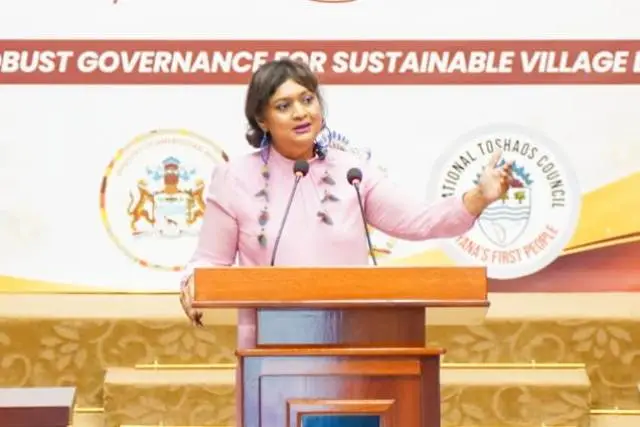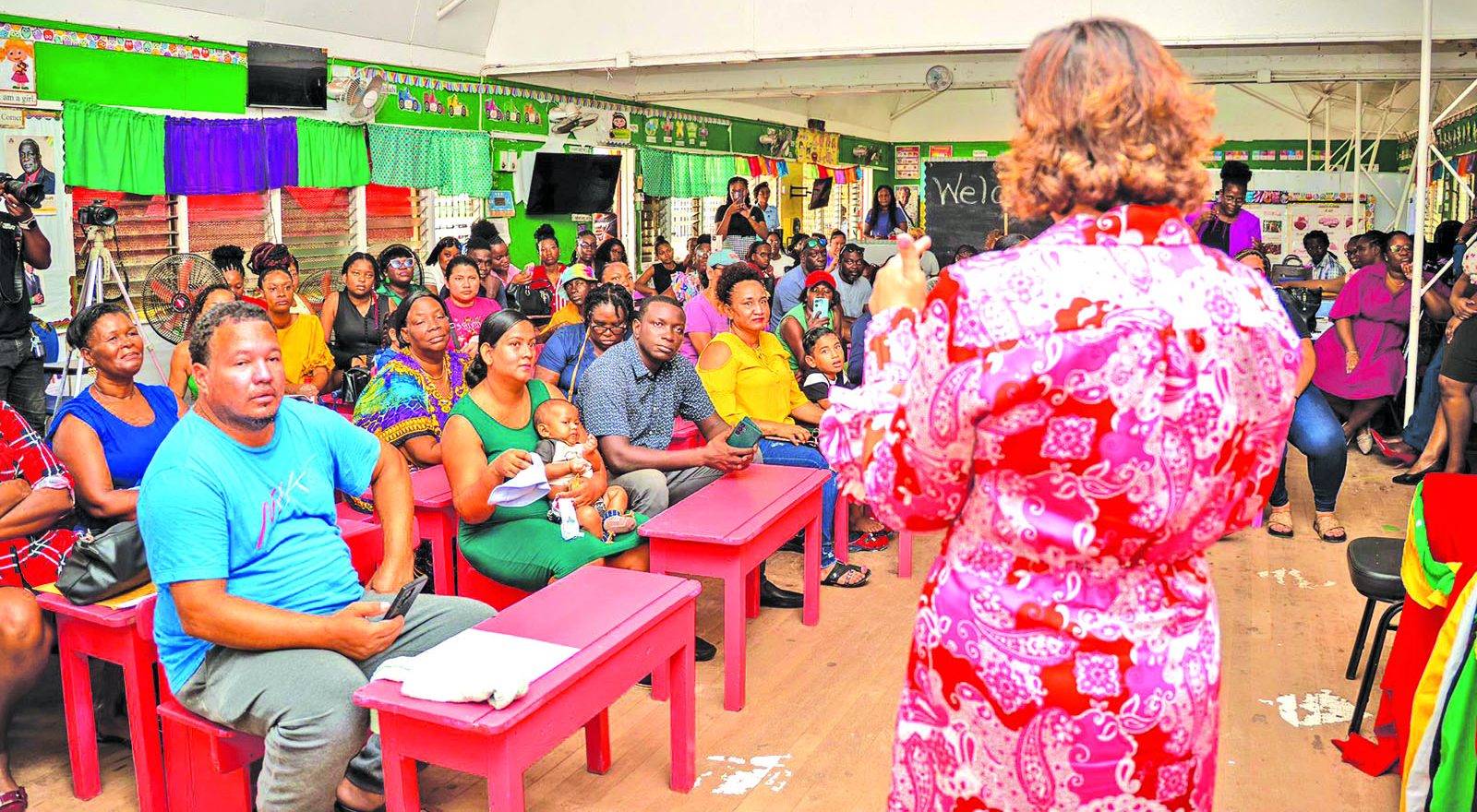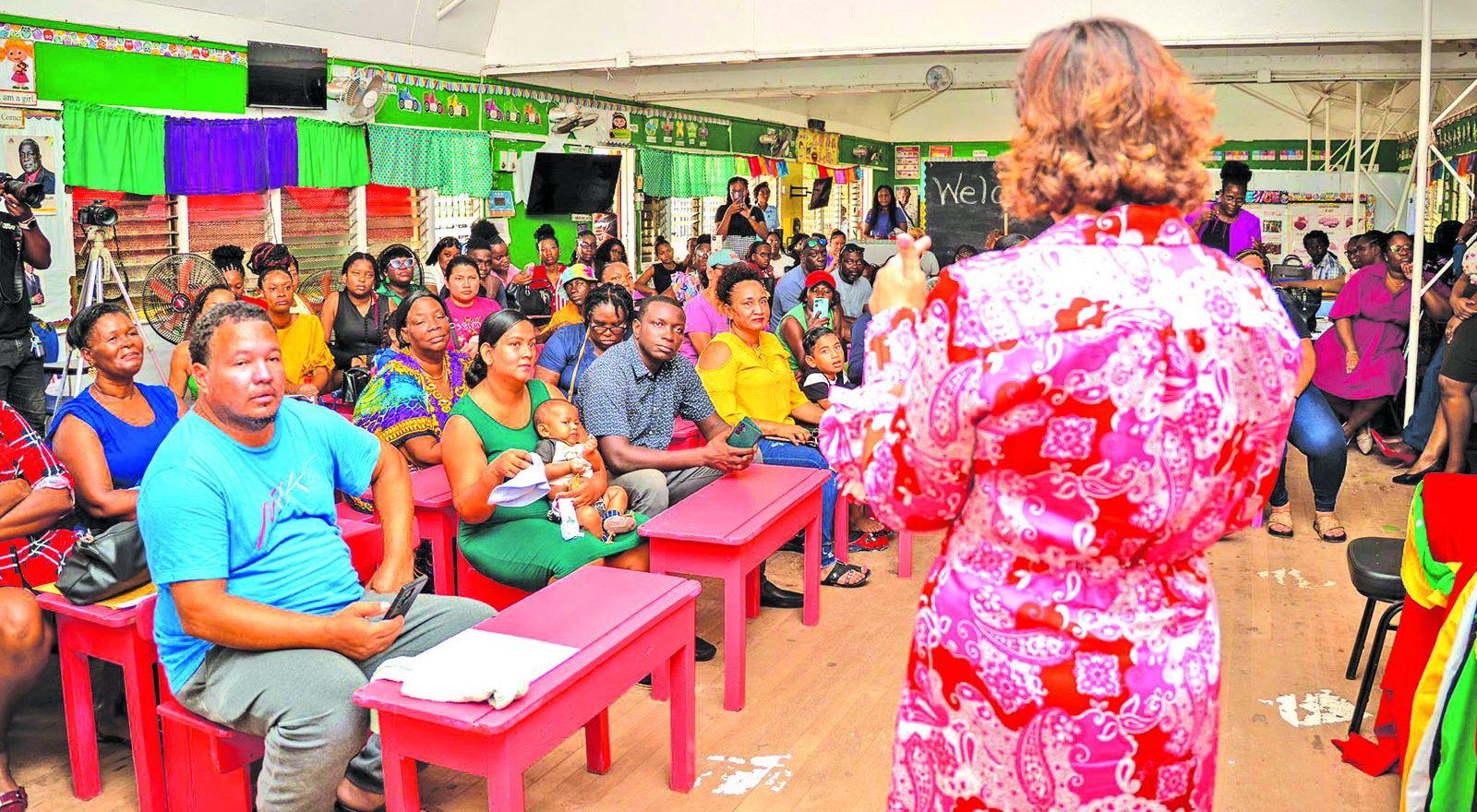… on the US 2011 TIP report
WE find objectionable the entire tone of the report but we wish to highlight a few of the untruths declared about Guyana by our friend the United States in the 2011 report.
By its recommendations and specific statements, the report suggests or states
1. That because of our now proven justified protest about last year’s report, we encourage trafficking in Guyana.
2. That an open atmosphere of discussion about the problem of trafficking does not exist in Guyana.
3. That NGOs and officials feel unable to discuss human trafficking because of public statements made by the GOG about the small scale of the problem.
4. That we do not offer support to NGOs to identify and actively help women, men and children subjected to trafficking.
5. That we punish victims of trafficking rather than help them.
6. That we are aware of complicity by officials in the area of trafficking and have done nothing about it.
7. That we have not done enough to raise awareness on the issue of trafficking.
RE # 1: That because of our now proven justified protest about last year’s report that we encourage trafficking in Guyana.
The Government of Guyana has a duty to defend the integrity of the people and State of Guyana. We make no apologies for exposing the last US report for what it was…that is, dishonest, unfair and a misrepresentation of the reality that exists in Guyana. We shall not be bullied into staying quiet by this now suggestion that our public statements regarding the state of Trafficking in our country could result in harm to our people and victims. Instead, we wish to say to the US that if you are so concerned about what messages our protests about your inaccurate reports might send, then you have a greater duty to ensure accuracy and honesty in your reporting, not only about us, but about every country you seek to monitor or judge.
Re# 2: That an open atmosphere of discussion about the problem of trafficking does not exist in Guyana.
Hundreds of public meetings are conducted all over Guyana, and particularly in the regions that might be most vulnerable to trafficking. Great effort is made to ensure all community members and officials, including police, teachers, social workers, NGOs, health workers, regional officials, trafficking focal point persons, etc, etc, attend.
Prior to hosting any such meeting, we spend a considerable amount of time mobilising said persons so that we can make maximum use of the resources, including time and money, that would be expended to conduct the meetings.
We reiterate our invitation to the representatives of the United States who are with us in Guyana to accompany us on any and all of these journeys to meet and inform and educate persons about the issues of trafficking, as well as to learn ourselves of any instances/vulnerabilities that may be existing in communities.
If this invitation is taken up, the US GTIP shall learn these discussions are as open as open can get.
RE# 3: That NGOs and officials feel unable to discuss human trafficking because of public statements made by the GOG.
Guyanese would know that government makes statements and NGOs in Guyana have never been shy to refute said statements and/or to wholly contradict them. To suggest that the US GTIP is not hearing from NGOs on this matter because said NGOs feel constrained by government’s public rejection of the United States report is to make a careless, destructive and unsupported assumption.
However, what is amazing in this particular matter is the suggestion that NGOs did not speak up is entirely dishonest. Two NGOs spoke on this issue. Both are on record as having been heavily critical of Government on other occasions in other matters. And both spoke. They are the Help and Shelter and the Guyana Human Rights Association. They spoke, but they didn’t say what the US GTIP wanted to hear. What they said would not have supported what the US has been saying about us all these years. Not a word was mentioned about these two correspondences in this year’s report. Do you believe if these NGOs had said that there is trafficking and given instances that these instances would have been left out of the report?
In the case of Help and Shelter, in a public letter to the newpapers, published in the Kaieteur News on the 29th June 2011, quoting the 2010 TIP report which based its conclusion that we were not doing enough as a country because, inter alia, we did not have appropriate shelter, H&S said:
“ The main shelter [incorrect location] focuses on domestic violence and reported it did not assist any trafficking victims; it is unclear whether this is an appropriate service provider for trafficking victims….
These statements apparently form the basis of the report’s finding that Guyana has failed to ensure that trafficking-specific shelter and care is offered to victims of trafficking, yet the first leaves room for misconception and the second is simply an unverified expression of doubt”.
And after detailing certain facts H&S continued with the following :
“We are concerned not only that the impression may have been created that we do not provide assistance to trafficking victims, but also that the our appropriateness as a provider of services for trafficking victims has been called into question simply – it would appear – due to lack of requirement for them.
“Our provision of shelter services to victims of domestic violence, while standing ready to assist victims of trafficking, prevents a waste of material and human resources in a country that cannot afford either.
We invite representatives of the US Embassy to visit our shelter to see for themselves that – to quote from the Action Guide – “potential victims are [sic] provided [with] appropriate shelter and care…”
Additionally, the GHRA, in a letter dated 18th August 2010 to the political affairs officer of the US Embassy here in Georgetown, and copied to the Hon Minister of Human Services and Social Security, said :
“As with human rights concerns in general, we believe the issue of Human Trafficking be addressed in accordance with international procedures with respect to facts, policy and principle. The GHRA’s assessment of TIP reports produced in recent years by the US state Department falls short of internationally acceptable standards.
“On the questions of fact, it is our view that the evidence of trafficking provided in the US trafficking Reports…is inadequate….the evidence is more speculative than factual….
“.On issues of policy, it is appropriate to place emphasis on national arrangements to prevent, protect and redress cases of trafficking. …. The case for concluding that the response of the Government of Guyana in terms of such arrangements is inadequate has not been justified. The GHRA is of the view that this situation has arisen because well established principles governing international fact-finding have been overlooked [by the US]…”
The GHRA then went on to quote relevant sections from the UN declaration on Fact Finding as a guide to how the US may fairly acquire facts on Guyana.
In his response on behalf of the United States, dated August 19th 2010, the Political Affairs Officer said, inter alia, that “the [convention] applies to UN fact finding missions and does not apply to reports compiled by [the US]….”
So it is not that the US GTIP is not hearing from NGOs because those NGOs are afraid of Government. The USGTIP is not hearing what it wants to hear from NGOs because Guyanese who live and work here are not of the view that we have trafficking on the scale that the US is claiming. Surely the Government, individuals and NGOs all can’t be wrong and only the USGTIP right.
How “truthful” is this report when it fails to tell its readers that the US was written to and about by these two NGOs. There is great effort to detail even single instances of trafficking, so any excuse that the US treated the complaints and objections by these two NGO as general would have to be rejected out of hand.
Re#4: That we do not offer support to NGOs to identify and actively help women, men and children subjected to trafficking.
The Government gives to the Shelter all the money the shelter says it needs to manage and operate said shelter and that amounts to $10,000,000.
In kind, support has been given to many other NGOs. This support includes training and facilitation of training and sharing of experiences and resources. Guyana is a developing country with the constraints on its budget that developing countries face. NGOs are funded by agencies other than the government, hence their name “non- Governmental….” It is true that not many NGOs work in the area of trafficking. Why is this? Could it be because the scale of the problem has been determined by these NGOs not to be big enough to warrant their help? Could it be because the said NGOs have determined that their efforts could be directed at other bigger social problems that Guyana faces?
Could we all be wrong on this issue and only the USGTIP right?
Re #5: That we punish victims of trafficking rather than help them.
This is simply untrue. We challenge the US to provide evidence of this.
The one case that was mentioned regarding the girl that was charged for wandering happened in these unfortunate circumstances. The young lady was rescued by our TIP department. She was placed at the Shelter and ran away. After much heartbreaking searches and great worry, we found her again. She was placed in the care of her grandmother, with full financial and other support from us. She ran away again and spent time on the road, committing other offences. She was then kept at the Police Station again, with visits from us and full support. The law enforcement felt the only way this child could have been kept safe away from predators was by having her in a facility where she could be watched and monitored. She was sent to the New Opportunity Corps. It is to be noted that she was not sent to NOC because of any trafficking related instances. Is this the best thing for this child? I would be the first to tell you no. If I had known personally of this victim, I assure you this would not have been the route that we would have taken to protect her. But, is it fair for a picture to be painted that we do this with the majority of our limited number of victims? If you look at the US report on itself ,where it gave itself a gold star and tier 1 ranking, you will see that even in the US there are victims who are unwilling to co-operate with law enforcement officials (and experts would tell you this is for a variety of very complex reasons). I quote directly from page 3 of the US report about the US
“…NGOs reported isolated incidents of officers citing victims risking withdrawal of benefits when faced with reluctant victims; NGOs also reported continued challenges in getting law enforcement to recognize reluctant victims for protection purposes…”
Can we conclude that the US treats all of its victims this way? That would be as silly as their unfounded conclusion about the way we treat victims their said conclusion being based on one incident.
Re #6: That we are aware of complicity by officials in the area of trafficking and have done nothing about it.
This is absolutely unverified. I know of no complicity by officials of the government. I wish to assure the United States that almost immediately, after we react to their routine and routinely unfair reports about us, we forget GTIP even exist. Officials could tell you that my and our protests to the US government and about said reports are never repeated in local routine meetings on trafficking. When we meet with officials to plan the way forward, and when we lay down policies and programmes, we do so with firmness which sends a clear message that any one sleeping on the job of addressing trafficking and any complicity would be dealt with condignly.
Official complicity would not be tolerated by the Government of Guyana on any issue of crime.
However, I wish to reiterate what we said officially to the US Government at our February Govt to Govt meeting. And that is if you know of something like this where officials are complicit in trafficking, then we want to be told, so that we can address same. Saying it in a report is hardly helpful and can hardly advance the cause for eradicating trafficking without providing whatever evidence you have which shall be treated confidentially. This report this year contradicts all the previous reports which specifically say there is no official complicity in trafficking. It is the same officers working in the area. So how come all of a sudden they have become complicit. However, I repeat with sincerity, we want to know about it.
Re#7: That we have not done enough to raise awareness on the issue of trafficking.
This suggestion is so ridiculous it is almost not worth addressing. Guyana has spent more money and other resources on awareness of the issue of trafficking that it is disproportionate to the scale of the problem we have here.
I close by saying that I truly believe it is necessary to keep worldwide attention on the issue of trafficking. The consequences for victims and for us as a human race would be overbearingly severe if we fail to address this issue frontally with all of our resources. Although many have objected at the arrogance of the United States appointing itself chief judge, sole jury and mass executioner, I am honestly of the view that this annual reporting should be done and could be very helpful in our worldwide fight against trafficking. If the US insists on doing it alone, then the best service they can give to victims of trafficking and potential victims of trafficking is to be fair and objective in their reporting.
If these reports continue to be so grossly inaccurate, not only will friendships be hurt, but as a world, we run the risk of refuting every year inaccuracies and unjustness rather than holding hands, combining resources and moving forward forcefully as one body against traffickers. When the US speaks and countries reject, the traffickers may well be emboldened. Victims may well feel hopeless, two consequences, I am sure, that the US Congress never intended when the TVPA was conceived and passed.
I wish to clearly say that while we will continue to reject false reports about Guyana, we are committed to ensuring this horror is removed from our midst. We have work to do in and around this very complex issue of trafficking. We shall continue to strengthen our social safety nets and our other social services so as to reduce vulnerabilities amongst our people. Guyana reinforces its resolve to continue the battle against those criminals who insist on exploiting and abusing the weaknesses of others. To all traffickers and would be traffickers, we say watch out. We will catch you and we shall deal with you condignly. To all victims, we say there is help. Please do not hesitate to access that help. Our 24 hour hotline number is 227-4083.
Source: https://guyanachronicle.com/2011/06/30/statement-by-minister-priya-manickchand




